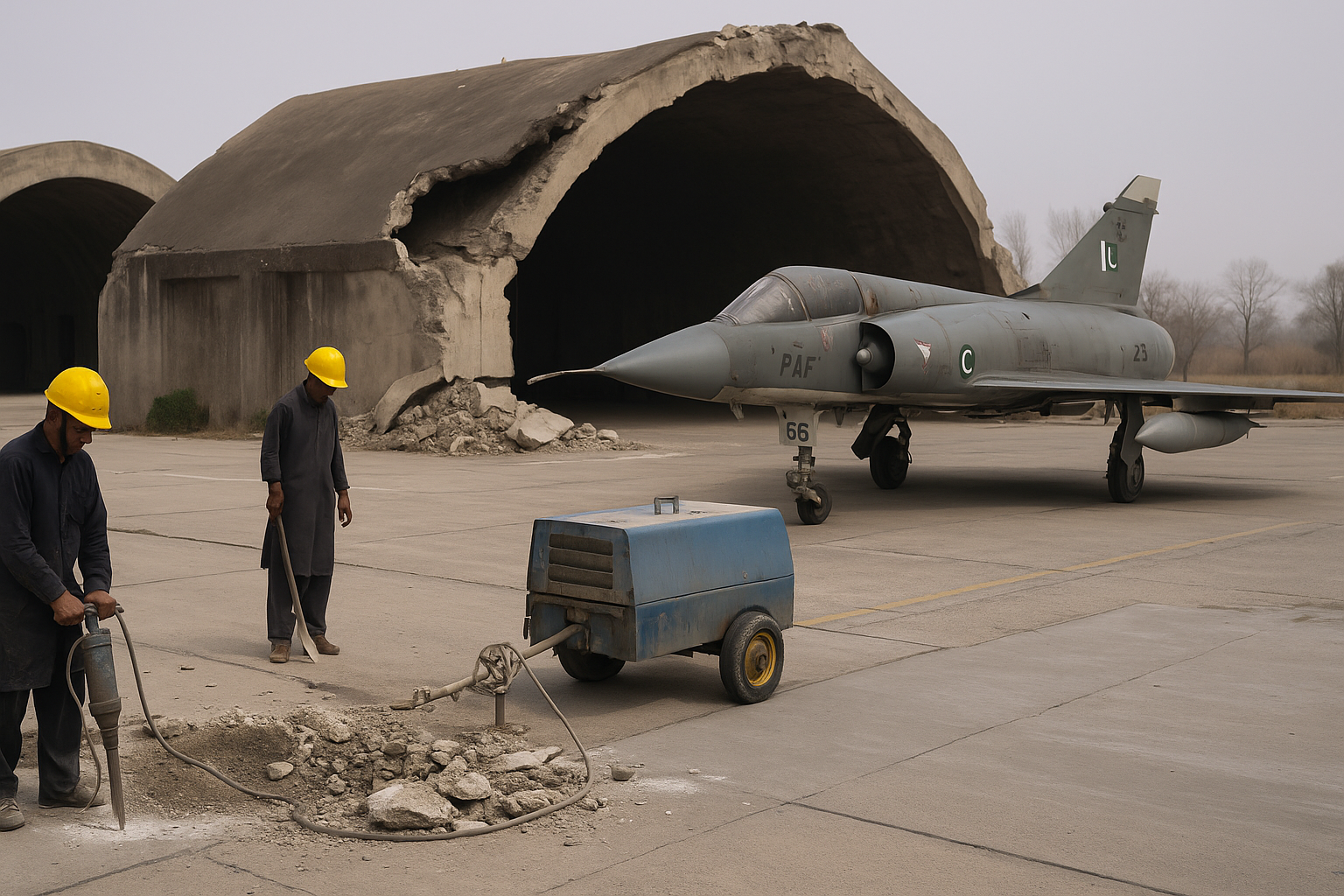In an unusual move that underscores the extent of recent damage to its military infrastructure, the Pakistan Air Force (PAF) has issued multiple tenders for urgent repair work at several key airbases targeted during India’s Operation Sindoor. The tenders, published publicly, point to substantial destruction at installations including PAF Airman Academy Korangi, PAF Base Murid in Chakwal, and PAF Base Masroor, among others.
Operation Sindoor was launched in early May 2025 by India in response to a deadly terror attack in Pahalgam, Jammu and Kashmir, on April 22, which killed 26 people, including tourists and civilians. The Indian Air Force (IAF) targeted multiple Pakistani military sites in a swift retaliatory operation, aiming to cripple Pakistan’s offensive air capabilities.

Now, Pakistan’s invitation for bids to restore infrastructure—ranging from runways and hangars to command centers—serves as a de facto confirmation of the success and scale of India’s strikes. Tender notices indicate repair deadlines extending into late June, with PAF Base Masroor accepting bids until June 25, and PAF Base Murid setting a deadline of June 23. The repair estimates include a 100 million PKR bill at Bahawalpur Air Base alone, with the total cost likely to be far higher across the entire network of affected bases.
Independent confirmation of the damage has come from multiple international sources. The Washington Post and Maxar Technologies have published high-resolution satellite images showing cratered runways at Mushaf Air Base in Sargodha and structural damage at Sheikh Zayed International Airport. Reports also confirm casualties among PAF personnel, with at least five airmen killed at Bholari and one at Mushaf. Geospatial analyst William Goodhind stated that Indian precision strikes appeared to have specifically targeted high-value assets and hardened shelters.
Until recently, Pakistani officials downplayed the extent of the damage, dismissing Indian claims as exaggerated. However, the release of public tenders for military infrastructure—typically handled discreetly—has raised questions about Islamabad’s strategy. Analysts speculate the decision may reflect either an effort to expedite urgent reconstruction amid limited resources or a reluctant acknowledgment of the effectiveness of the Indian strikes.
Meanwhile, Indian officials have touted Operation Sindoor as a tactical and strategic victory. Satellite imagery and independent reporting from The New York Times have validated India’s claim of having inflicted significant damage, while dismissing Pakistan’s assertions of retaliatory hits on Indian military sites as baseless. Indian Foreign Secretary Vikram Misri has accused Pakistan of resorting to civilian targeting in Jammu and Kashmir and Punjab during the conflict, further straining diplomatic ties.
The fallout from the strikes continues to reverberate along the Line of Control and International Border, with rising ceasefire violations and drone incursions reported. As both nations harden their military postures, the long-term consequences for regional security in South Asia remain unpredictable.
The issuance of the tenders, coupled with independent assessments, marks one of the clearest signs yet of Pakistan grappling with the operational and symbolic blow dealt by India’s first major cross-border air campaign in years.













